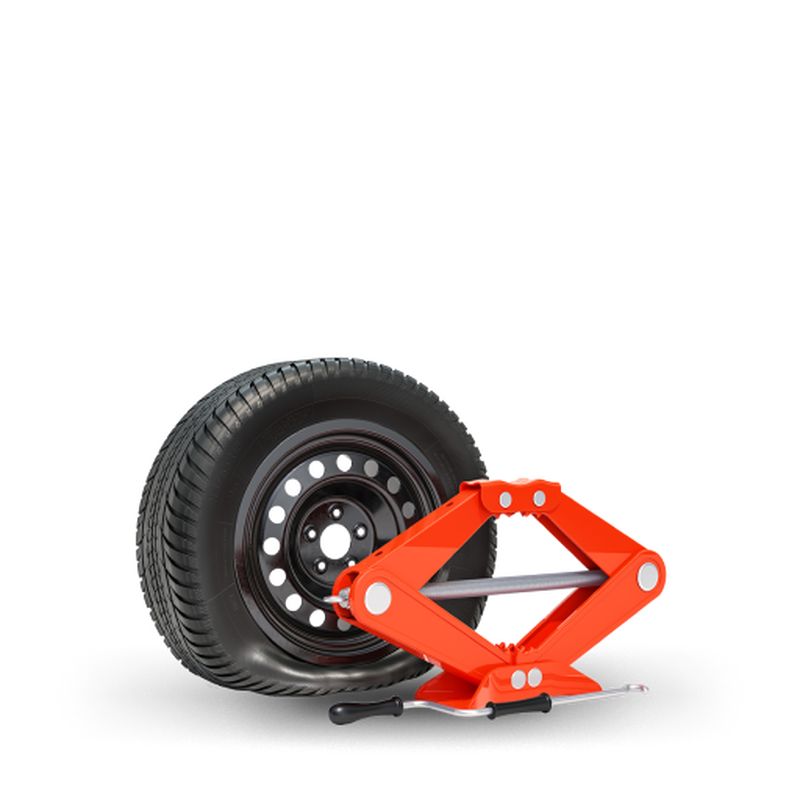Obtain Road-Ready with Professional GMC Tires Service at Morris Tires
Obtain Road-Ready with Professional GMC Tires Service at Morris Tires
Blog Article
Tire Service: The Impact of Climate Condition
When it comes to making certain ideal performance and safety and security on the roadway, comprehending the effect of climate problems on tire service is crucial. GMC Tire Service. In this discussion, we will check out the intricate relationship between weather condition problems and tire service, losing light on the relevance of weather-specific tire maintenance techniques and considerations.
Heat and Tire Performance
When subjected to high temperatures, tires experience adjustments in efficiency that can significantly affect car safety and security and handling. The warm generated from extended driving or warm weather problems creates the tire rubber to soften, causing reduced tread life and raised wear. As the rubber comes to be softer, the tire's grip when driving diminishes, impacting braking distances and general grip. In severe instances, too much warm can even create tire blowouts, posing a serious safety and security threat to the lorry and its residents.

Winter Results
Cold weather condition conditions can have a substantial impact on tire performance and safety and security. As temperatures drop, tire rubber can solidify, causing reduced grip on icy or snow-covered roadways. In winter, tires might also lose atmospheric pressure extra quickly, which can affect managing and gas efficiency. In addition, cool temperature levels can create tire sidewalls to tense, enhancing the threat of damage from gaps or various other roadway hazards.
To reduce the results of cool weather condition on tires, it is important to frequently check tire pressure and inflate them to the supplier's suggested levels. Using wintertime or all-season tires developed for cool climate problems can also boost traction and grasp on icy or snowy roads. Correct tire maintenance, including normal assessments for wear and damage, ends up being much more important throughout chillier months to guarantee ideal performance and security.
Rainy Issues Influence
Tires with damaged footsteps are much more prone to hydroplaning, where a layer of water builds up in between the road and the tire surface area, leading to loss of traction. To fight this, chauffeurs must frequently inspect their tires for appropriate step depth and take into consideration spending in tires particularly made for wet problems.
Moreover, stormy weather can additionally lower exposure, making it challenging for chauffeurs to see the roadway ahead clearly (GMC Tire Service). In such problems, it is important to adjust driving rates appropriately and preserve a safe following range to allow for sudden quits. Effectively filled with air tires can additionally aid in preserving control on wet roadways by supplying far better handling and hold
Snow and Tire Security
When driving in snowy problems, having the appropriate tires can make a significant difference in security and performance. Winter tires are developed with unique rubber substances and tread patterns to provide better grip on snow and ice compared to all-season tires.
Moreover, drivers need to take into consideration installing tire chains in extreme snowy problems. Tire chains give additional traction by gripping the snow and ice, boosting stability and control. Nonetheless, it is very important Our site to comply with producer guidelines when installing and using tire chains to stop damage to the tires and car. By picking the right tires, maintaining proper inflation, and considering additional traction aids like tire chains, vehicle drivers can enhance their safety and security when browsing snow-covered roads.
Weather-Related Tire Upkeep
When faced with numerous weather, appropriate tire upkeep comes to be a vital aspect of vehicle safety and security and efficiency. Weather-related tire upkeep includes a variety of practices focused on guaranteeing optimum tire function and longevity in various weather circumstances. One vital facet of weather-related tire upkeep is tire pressure law. Varying temperature levels can create tire pressure to differ, impacting grip and fuel effectiveness. Consistently examining and changing tire stress according to manufacturer recommendations is important for risk-free driving in altering weather. Furthermore, tire walk depth plays a significant role in taking care of various climate components. Tires with adequate step deepness give far better hold on damp or icy roadways, decreasing the threat of hydroplaning or skidding. When step wear gets to a certain deepness is vital for preserving grip and stability in damaging read what he said climate, checking tire walk regularly and changing tires. By focusing on weather-related tire maintenance, drivers can boost security, boost car performance, and prolong the life-span of their tires.
Conclusion
In conclusion, weather conditions have a considerable influence on tire performance and safety. From warmth affecting tire stress and wear to cool climate minimizing grip, it is important to think about the weather when keeping and making use of tires.
In this conversation, we will discover the elaborate partnership between weather conditions and tire service, shedding light on the significance of weather-specific tire upkeep practices and factors to consider.

Report this page